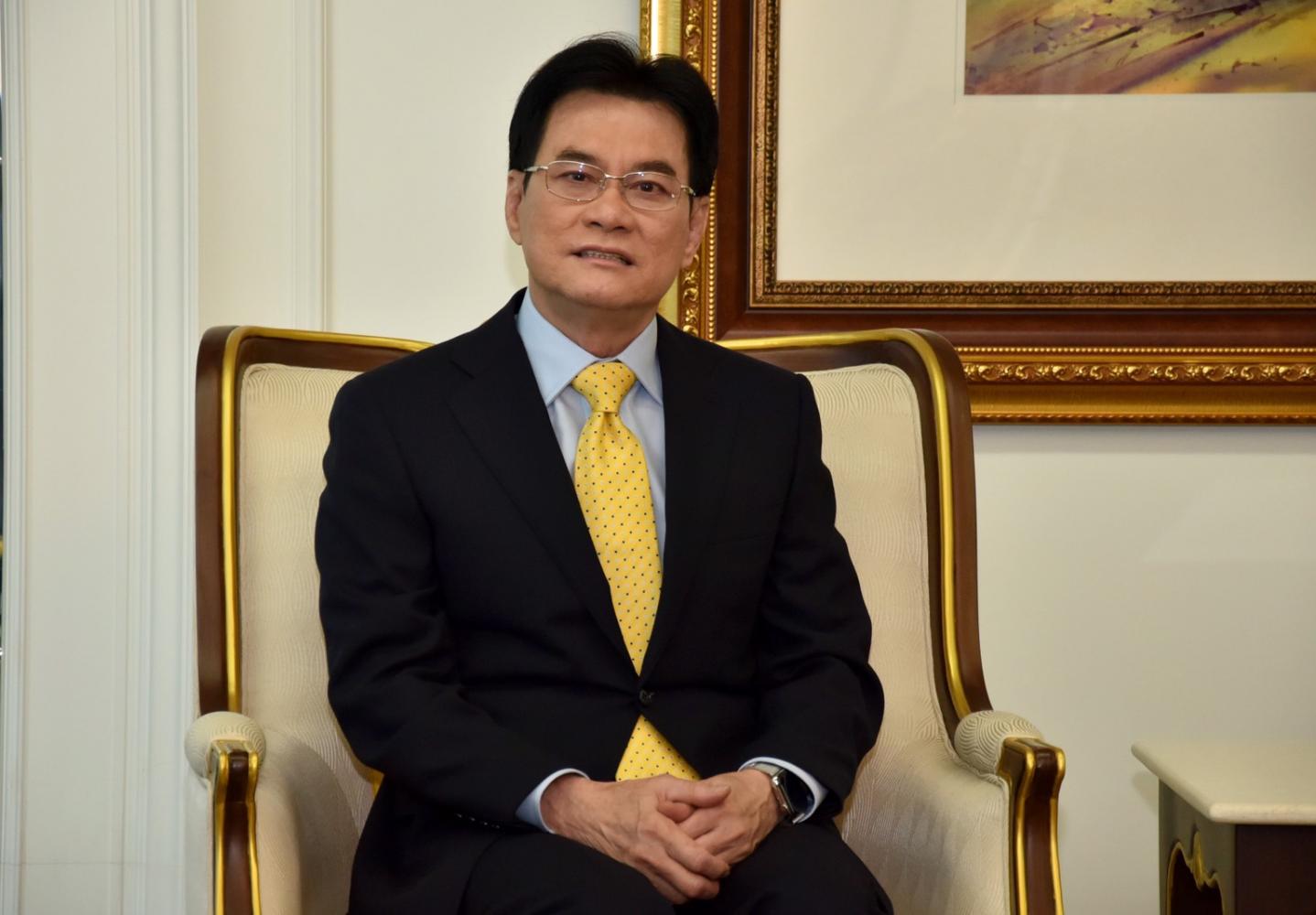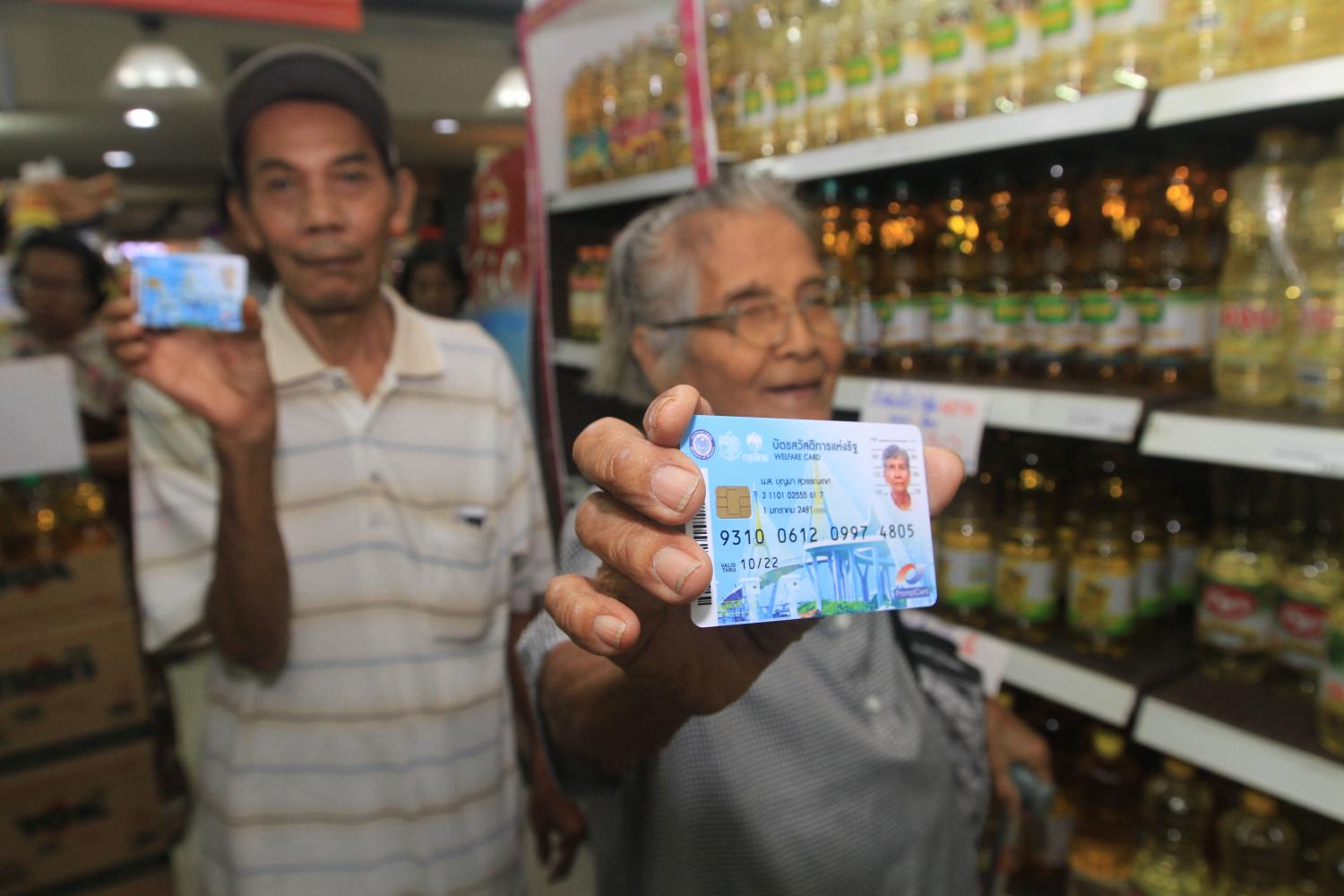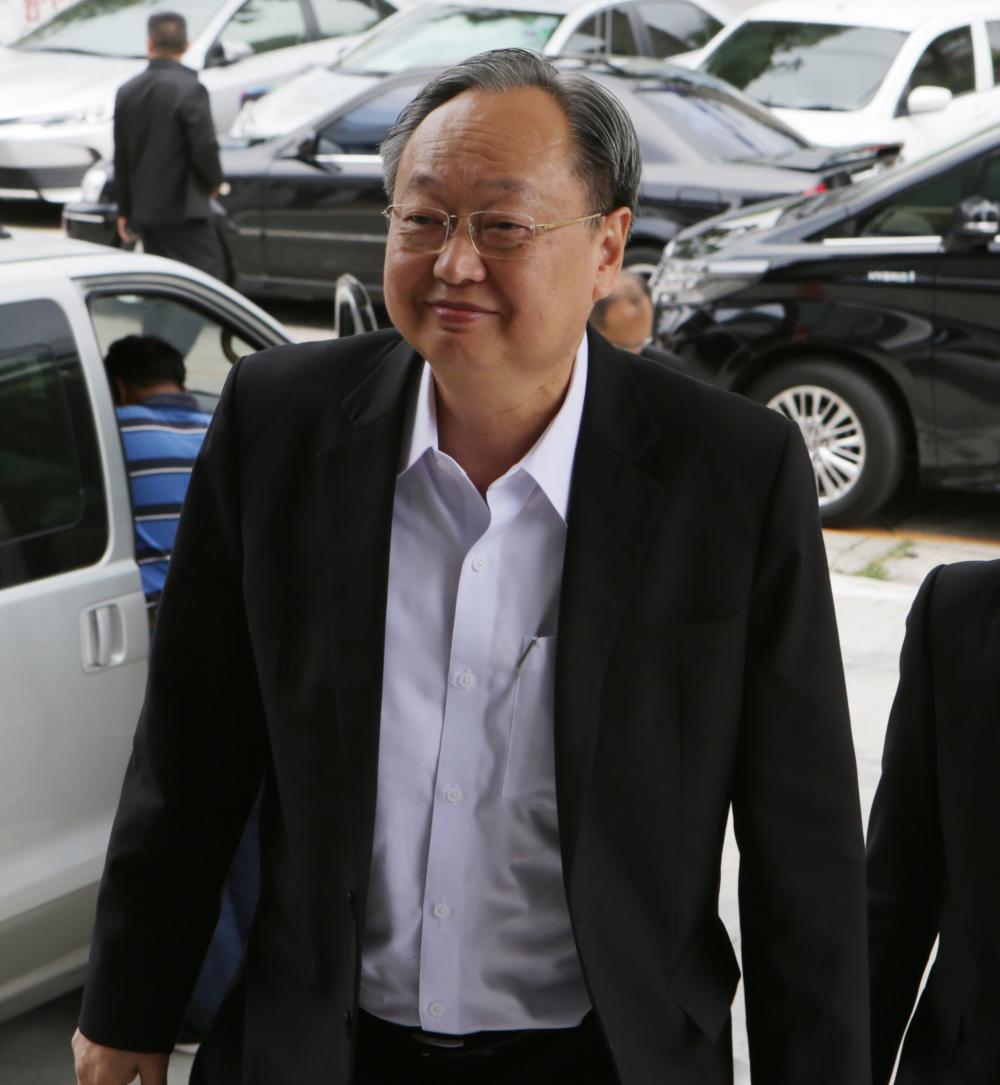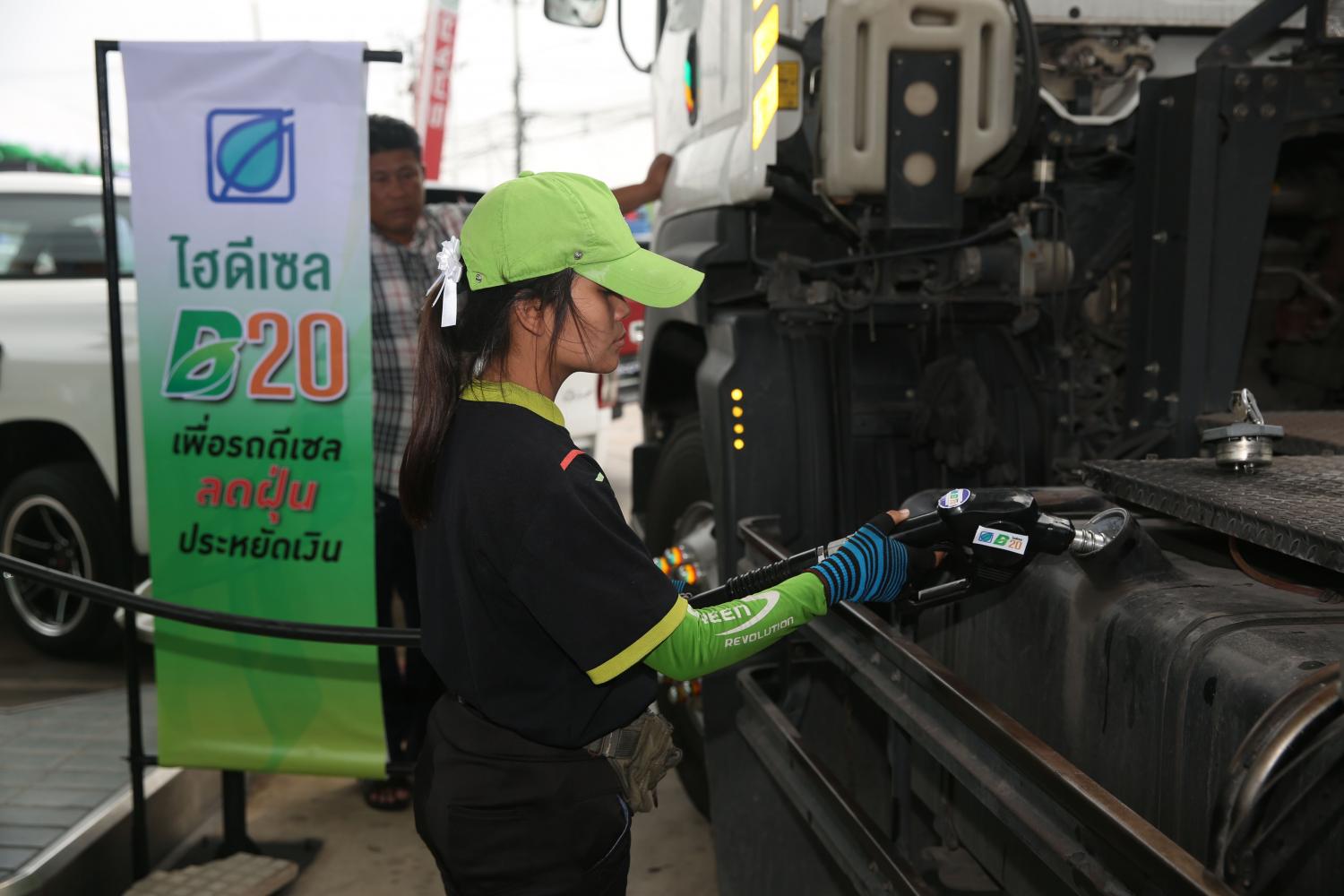Pledges to fulfil election campaign policies are on the verge of being labelled fact or fiction as the new coalition government ramps up efforts to reinvigorate the lacklustre economy.

With the familiar ministerial faces seen under the Prayut Chan-o-cha government, it's expected that policies implemented during the previous military-led government will be continued, and populism extended further.
Policies of the Prayut 2.0 government will be announced July 25-26, with policy scrutiny by the opposition parties set in place at this time.
It will be a showdown to determine whether campaign policies are merely false hopes or an actual reality.
Policies by the Palang Pracharath Party (PPRP) will take centre stage as over-the-top populism is seen as a peril for future fiscal discipline.

The newly installed ministers have promises to keep from the election campaign.
"The size of government spending compared to GDP is very small and is mostly regular budget," said Asst Prof Anusorn Tamajai, director of the Economic and Business Research Center at Rangsit University. "Increasing economic growth partly requires confidence and driving up investment from the private sector."

Uttama: Prioritising stimulus to kick-start ailing economy
SPLASH THE CASH
Newly installed Finance Minister Uttama Savanayana aims to prioritise a stimulus package to resuscitate the ailing economy, including boosting domestic spending through secondary-province tourism, state welfare to low-income earners and assistance to small-business operators.
A planned cash handout for tourism spending in secondary provinces could be dusted off, an informed source at the Finance Ministry said, adding that it could cost the government tens of billions of baht if the measure comes to fruition.
Doling out a one-off cash perk for travel in 55 second-tier provinces was shelved by the previous government after coming in for criticism as a politically motivated ploy.
The Finance Ministry in April planned to propose a 1,500-baht cash handout for travel in secondary provinces, aimed at boosting the number of tourist visits.

Jurin: Income guarantee for farmers will expand to other crops
Extra allowances, including utilities and rental subsidies, to state welfare smartcard holders could be renewed, and this could also cost in the tens of billions of baht, the source said.
Assisting small and medium-sized enterprises feeling the pinch of the economic slowdown is also among the new government's focus, the source said, and the Finance Ministry is seeking ways for specialised financial institutions to provide SMEs with financial liquidity.
Thailand's GDP will likely expand by less than 3.5% this year because of lower-than-expected export growth, and stimulating the domestic economy is needed to cushion against the global economic slowdown, the source said.
Customs-cleared exports fell by 5.8% year-on-year in May after contracting 2.6% in April and 4.9% in March. For the first five months, exports shrank 2.7% year-on-year.
Regarding the PPRP's election campaign to slash personal income tax rates by 10 percentage points across all brackets, the source said the issue will take time to consider because of the impact on revenue.


TREAD WITH CAUTION
New stimulus measures could alleviate the plight of those reeling from subdued economic growth, but there are structural problems and fiscal limitations for policy execution, Asst Prof Anusorn said.
The government's stimulus measures can be divided into two parts: the first associated with fiscal stimulus through tax cuts and public spending and the second centred on quasi-stimulus measures executed by state-owned financial institutions, he said.
Tax cuts or public spending are not expected to be implemented to full effect, due to fiscal constraints, Asst Prof Anusorn said. The effectiveness of the stimulus measures depend on the multiplier effect and leakage, depicted as the circular flow of income and expenditure, of billions of baht worth of stimulus measures.

Sontirat: Energy and power should be driven by price management
"Quasi-fiscal measures through state-owned banks must be used with caution to prevent excessive public debt in the future if loan projects turn into bad debts," he said.
Thailand's monopolistic economic structure could cause stimulus measures to yield a minimum effect and result in the concentration of economic benefits, Asst Prof Anusorn said.
"Inequality has blocked small businesses from accessing technology, capital and production-related factors," he said.
Failure to implement public investment projects in a timely fashion and increasing public investment disbursement rates pose the biggest domestic risks to the country's economic growth going forward, the World Bank said in its latest East Asia and Pacific Economic Update report titled "Managing Headwinds".
The disbursement rate for public investment was less than 60% in fiscal 2017 and fiscal 2018.

Suriya: Keen to expand corridor concept to other provinces
STABILITY IN QUESTION
Government stability is another factor weighing on the minds of many, as the fragile coalition could disintegrate at any time.
"The stability of the new coalition government under Prime Minister Prayut Chan-o-cha, with its disparate 19 parties led by the PPRP, is uncertain and its ability to implement its policy agenda could be constrained by its thin majority," Fitch Ratings said in its latest assessment of Thailand.
"Protracted negotiations over the formation of the new government have already led to a three-month delay in the budget process and the approval of new infrastructure projects," Fitch said.
Compounding the uncertainty is Mr Uttama's involvement in the 2003 Krungthai Bank (KTB) lending scandal.
Mr Uttama was one of the five board members of KTB who unanimously approved a 9.9-billion-baht loan to Krisdamahanakorn, a property developer, to refinance its debts in 2003.
The Supreme Court for politicians ruled in 2015 that the loan approval was made illegitimately because the funds were later misappropriated after Bangkok Bank, Krisdamahanakorn's creditor, gave the company a debt haircut.
Three of the board members were later convicted and jailed for 18 years.
The Asset Scrutiny Committee, a panel set up to build cases against former prime minister Thaksin Shinawatra and his government after the 2006 military coup, did not charge Mr Uttama and the other board member.
Former finance minister Thirachai Phuvanatnaranubala warned that Mr Uttama's key position in the cabinet poses a risk to stability because the constitution stipulates that cabinet members must have prevailing integrity and not violate ethical standards.
Mr Uttama has denied the accusation, saying his role was heavily scrutinised multiple times in the past 10 years and each time he was cleared because he had done nothing wrong.

BMW employees at the car maker's Rayong plant. Advanced manufacturing is one of the industries promoted by the government in the EEC zone. KRIT PROMSAKA NA SAKOLNAKORN
OTHER PRIORITIES
Looking outward from the realm of finance, there are other pressing items for key ministries.
An income guarantee for farmers, export stimulus, cost-of-living supervision and sped-up trade talks will be high on the agenda of newly installed Commerce Minister Jurin Laksanawisit.
According to Mr Jurin, who had his first day in office at the Commerce Ministry last Thursday, an income guarantee for farmers will offer crop price guarantees not only for rice, but also for rubber, tapioca, oil palm and corn, which are crops associated with the vast majority of the population.
Higher income will not only raise the quality of living for local people, but cover the overall local economy as well, helping to offset poor export performance.
Income and crop price guarantees were among the proposals the Democrat Party campaigned on during the run-up to the March 24 general election.
The party earlier championed a programme of crop price insurance and guaranteed income for farmers when it led a coalition government during 2011-13.
Under the income guarantee plan, farmers received the difference between insured rice prices and benchmark prices that changed every two weeks following market prices.
Such a scheme would seek to avoid the burden of millions of tonnes of rice stocks accrued under the Yingluck Shinawatra government and later auctioned off at a loss.
For low-income earners, the minimum wage will rise gradually, with increases awarded in those industries able to absorb them, said Labour Minister MR Chatu Mongol Sonakul.
MR Chatu Mongol said he would emphasise development of labour skills in the workforce. He set a target of achieving a highly skilled Thai labour force in 20-30 years.
Industry Minister Suriya Jungrungreangkij said he is keen to carry out the flagship Eastern Economic Corridor (EEC) scheme and expand the corridor concept to other provinces.

A PT attendant refuels a vehicle.The new government has vowed assistance for low-income earners. Varuth Hirunyatheb
The three host provinces of the EEC are Chachoengsao, Chon Buri and Rayong, but the scheme means a centralisation of employment with high salaries in these provinces.
"In my capacity, the ministry has to promote new special economic zones in other provinces in order to increase new jobs in other locations and lift up salaries and income of locals," Mr Suriya said.
For the EEC, the ministry will speed up ongoing megaprojects such as high-speed railways, seaports and aviation because there have been no new megaprojects in these three provinces since activity under the Eastern Seaboard Development Programme launched in 1982.
Support for SMEs to access financial assistance from state-owned banks and other aid is also a priority for the Industry Ministry.
Energy Minister Sontirat Sontijirawong said the energy and power sectors should be driven by price management.
Low-income earners and small companies have to be the top-of-mind groups for support measures.
"When low-income people are not capable of purchasing electricity and fuel, the ministry has a duty to help them access it," Mr Sontirat said.